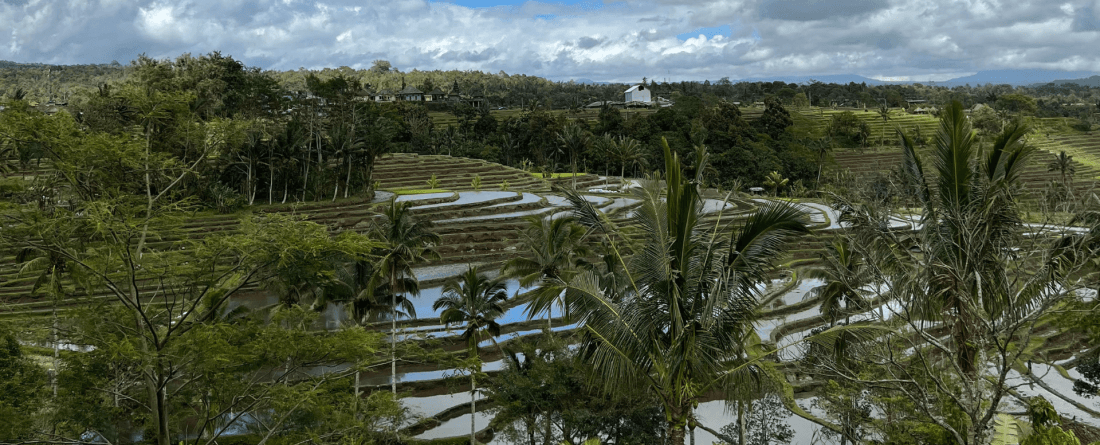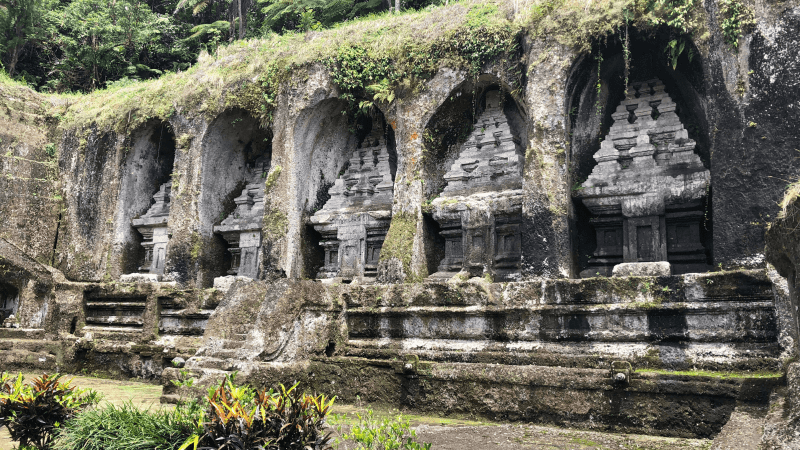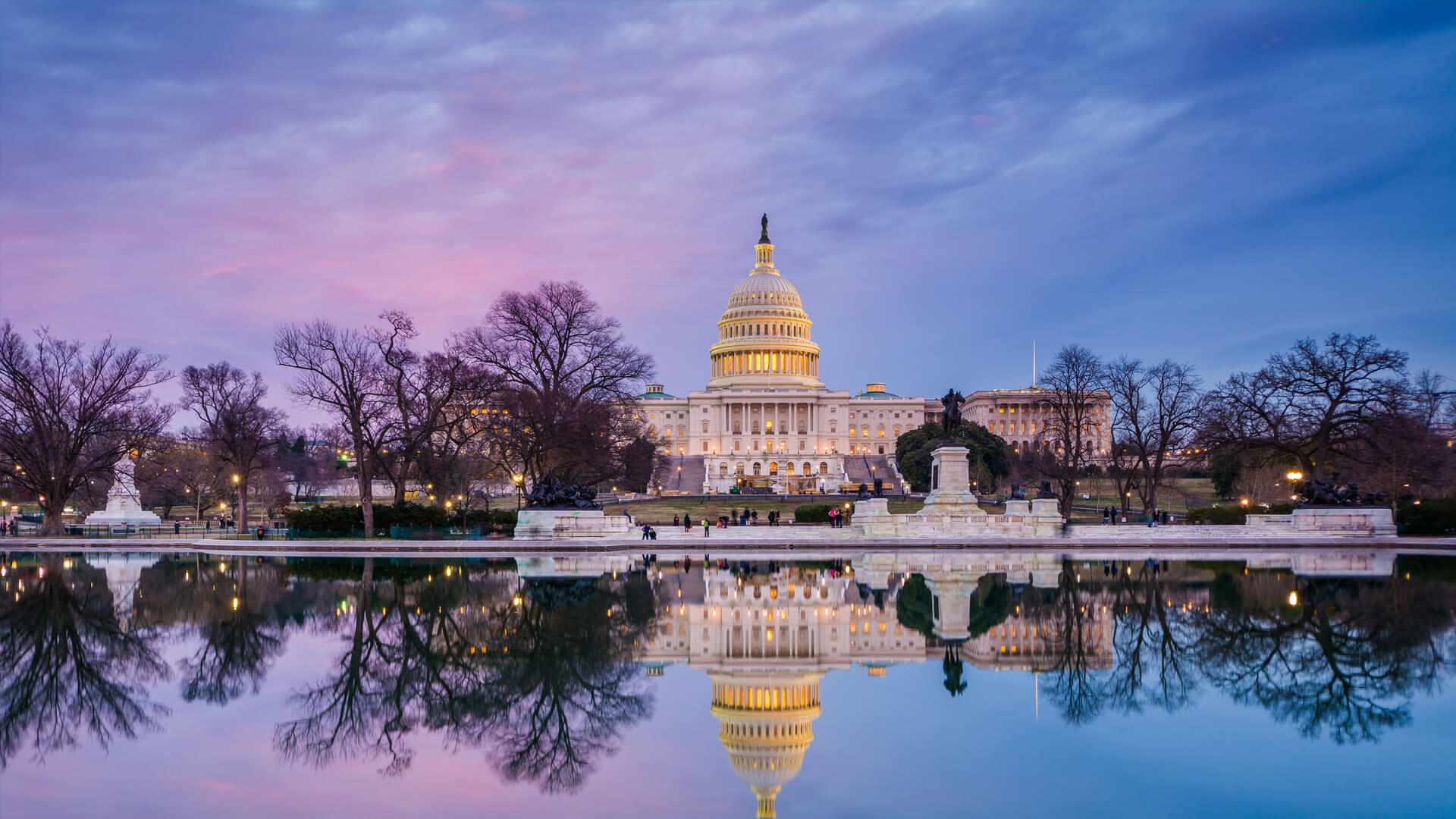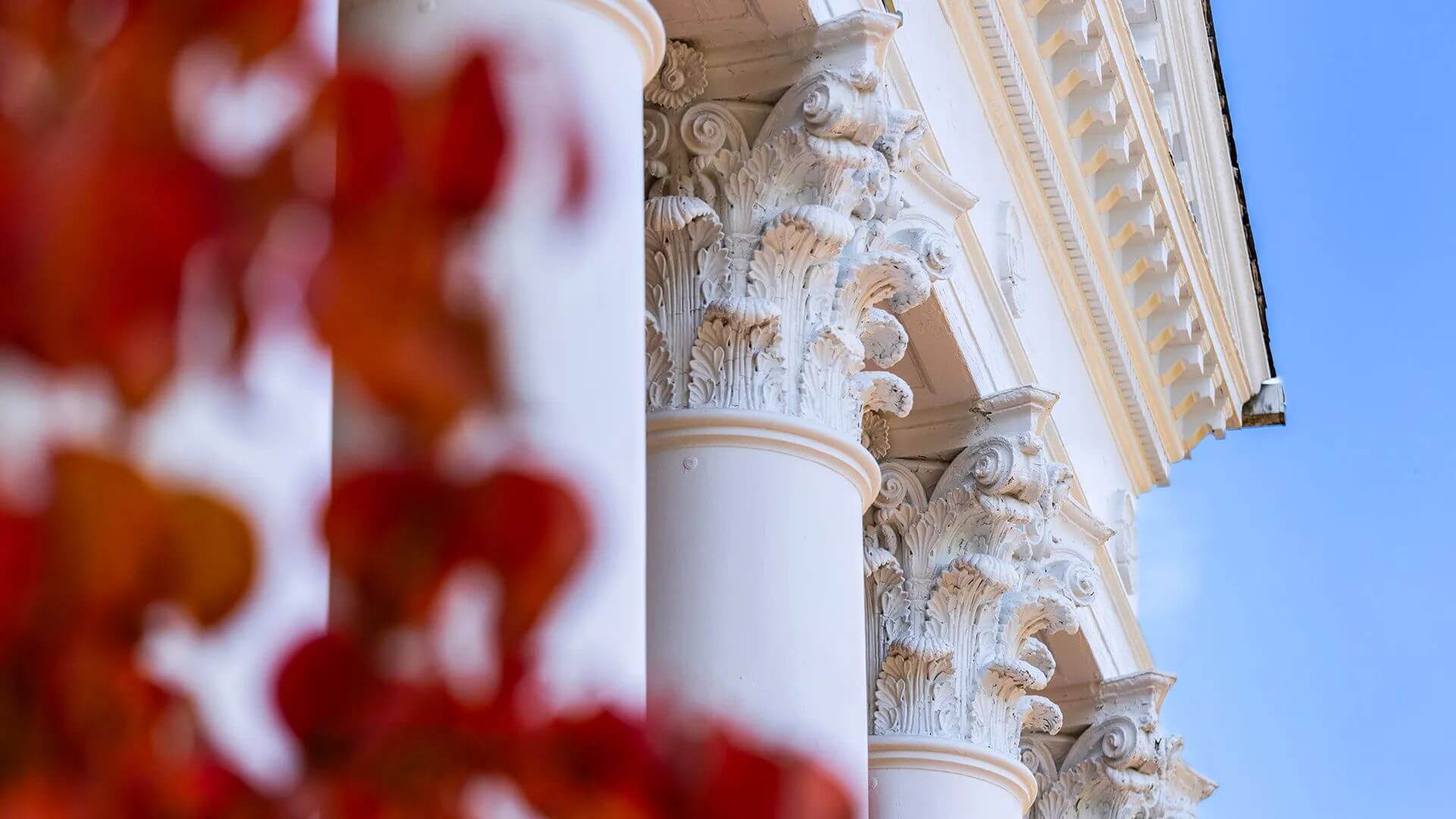
While browsing through the winter course options, Shira Bracha Diamond’s interest was piqued by “Improving Programs through Evaluation-Based Performance Monitoring and Management.” This course included elements that Diamond thought may prove useful in her capstone project. Upon closer inspection, she learned that the course was being offered abroad - in Italy. Meanwhile, both Mira Morgan and Grace Pettey came across the “Social-Ecological Systems, Environmental Policy, and Sustainable Development” course being offered in Indonesia and decided to apply. “With the extended winter break at UMD, I knew that traveling would be a great way to spend time ‘off’ between semesters,” explains Pettey. All three School of Public Policy graduate students traveled overseas during the winter term, deepening their understanding of policy work abroad, exploring other topics of interest and engaging in life-changing experiences.
The “Improving Programs” course was based at the Milan campus of the Università Cattolica del Sacro Cuore and the course summary explained that, “even the best designed program can falter from poor implementation or management.” The course aimed to equip students to utilize the tools of program evaluation to monitor program activities, outcomes and costs to ensure successful program application. Diamond’s up-close view of these tools on display in the Italian government afforded her the in-depth understanding of how the Italian government is structured and the specific role Italian civil servants play. Diamond has a particular interest in education policy and has always been interested in comparing the United States’ educational system to other countries. “This course allowed me to further my knowledge of educational systems, in this case the Italian education system, and propel my curiosity forward,” reflects Diamond.
For Morgan and Pettey, the “Environmental Policy” course was a step outside of their usual policy arenas. The goals of the course were to “examine the systemic interconnections between Indonesia’s environmental challenges and development strategies with a focus on the interface between local governance systems and global policies.” Morgan was “particularly interested in the equity and justice lenses that were applied to the environmental issues facing Indonesia,” and was excited to learn about topics including environmental justice, climate change, resilience and sustainability, which she doesn’t ordinarily focus on. Pettey’s specialization lies in international security policy, and she was delighted for the chance to explore the intersection of climate change and sustainability with security challenges.
“Throughout the course, we had incredible access to some of the highest levels of leadership at NGOs, universities, research institutes, government ministries, businesses and activist organizations from around the country,” said Pettey. It was a crash course in high priority environment and energy issues. Something that has stayed with Pettey since the end of the course is the complexity of the palm oil industry for the Indonesian economy, environment and society. The group learned about this complicated issue from a variety of diverse perspectives, including an activist leader, palm oil company and a research institute. For Morgan, she was struck by the prevalence of carbon sinks in the ecosystem. A carbon sink is anything that absorbs more carbon from the atmosphere than it releases. A good example are mangroves, a tropical plant that is rooted in loose, wet soil and is often partially submerged by tides. Mangroves store a remarkable amount of carbon, and when they are deforested, carbon is released into the atmosphere. According to Morgan, a fact that she found mind-boggling was that stopping mangrove destruction would be equivalent to 40 million fewer cars on the road.
Another part of the course involved visiting Hindu temples in Bali to understand the connection between environment, community, and spirituality in Balinese culture. Morgan commented that “The temples were unlike any religious institution I had visited in the U.S., as they are often embedded in tropical rainforests and are the size of what we might call a state park in the U.S.” The open-air places of worship were some of the most beautiful places Morgan had ever seen. Pettey recalls that the Gunung Kawi temple was especially breathtaking. “There were 10 shrines cut out of the rock face dating back to the 11th century. To stand in front of something so massive and created with such intention so many years ago was truly awe inspiring.”
Besides academic pursuits, the students were also able to engage in some once-in-a-lifetime extracurricular activities. A personal highlight for Diamond was visiting the Teatro alla Scala in Milan, an 18th-century theatre famous for its operas, ballet, and museum. “When my friends and I went to visit, we got extremely lucky and were able to watch an opera practice on the stage and got some backstage insights from the staff,” recalls Diamond. In Indonesia, the students rode a mountain bike ride in Bogor; hiked up a volcano at Sunrise in Bali; and when staying in Jakarta, got to visit the school that former President Barack Obama once attended as a child. Pettey shared that one morning, some of the students walked to the school to see the statue of “Barry” on the grounds, and remarked, “it was so cool to put myself in the shoes of our former president and think of how his own experiences abroad shaped his perspective on the world.” All three students also reflected on the special friendships they had formed with other policy students, as well as students from other University of Maryland colleges, during their time abroad.
Diamond, Morgan and Pettey agree that studying abroad is something all students in the School should consider. Diamond notes that not all trips are the best fit for every person, and advises that interested students do some research prior to applying. Both she and Morgan recommend reaching out to the professors leading the trips to learn more about the coursework and expectations. Pettey’s advice to students considering studying abroad is to reach out to other students who have participated in the study abroad program to learn about it directly from them, and to leverage your graduate assistantship to cover part of the course credits. As Pettey commented, “Ultimately, travel is an exercise in growth and humility, and you won’t regret this unique opportunity to experience another place and culture through learning.”




